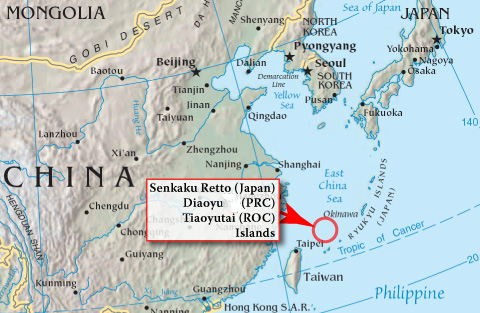For those of you who are unfamiliar with what happened today, a brief explanation:
The Nanjing Massacre was perhaps the greatest war atrocity of the Second Sino-Japanese War. On this day in 1937, Japanese soldiers captured the city of Nanjing and proceeded to rape, murder, and mutilate hundreds of thousands of Chinese civilians. As I personally find the details very disturbing, I am not linking any text to the Wikipedia page and instead will leave it to the reader's discretion to search it on his or her own. Anyone with further interest in the Nanjing Massacre can search out Iris Chang's definitive historical account, The Rape of Nanking.
Tellingly, Chinese people refer to this incident as the 南京大屠杀 Nánjīng Dàtúshā, which, literally translated, means the Nanjing Holocaust. There is a memorial here in the city whose campus may be just as large as Nanjing University proper, further evidence of how large a presence this incident has in the public psyche. Part of the reason I was so worried for my Japanese roommate during the anti-Japanese hysteria over the Diaoyu Islands dispute was because she was a Japanese girl in Nanjing. I was equally worried today. However, judging by her demeanor today, and the demeanor of my three Japanese classmates, there seemed to be nothing to worry about. It was actually very odd.
Every year on December 13th, the city government sounds air raid sirens across the city. I didn't know about this ahead of time, so when the sirens started going off during a break between classes this morning, I was taken by surprise. Growing up in Nebraska, I heard tornado sirens every first Thursday of the month, so when these sirens began, I actually expected to feel a pang of homesickness. But these sirens were different from the ones at home. I don't know how to explain it, maybe it's due to all the WWII movies that make use of the air raid siren motif, but these sirens made me feel afraid. Even though I knew they were commemorative sirens, even though I have had no personal experience being the subject of a military attack, the sound of these sirens made me want to hide and cry. Imagining the fear Nanjingers must have felt at the sight of Japanese troops 75 years ago only made it worse.
I looked around at my classmates as the sirens continued, wondering if any of them were as deeply affected. My Italian classmates were; one was clutching her rosary and had her head bent down in prayer. My Kazakh classmate seemed contemplative at the very least. My Japanese classmates (one elderly gentleman and two girls my age)... continued to chat and joke around even as the sirens were wailing around us. I'm still trying to figure out how I feel about that. My Korean classmates weren't in class today, nor was my Iranian classmate, so I don't know how they felt.
Anyway, since today was such a meaningful day for the city of Nanjing, I knew there would be interesting ceremonies around the city, and wanted to try to find one. Unfortunately, I had class today from 8-4, so I had to wait until it was already dark outside before venturing out.
I decided to go to the Nanjing Massacre Museum, even though I knew it would be closed by the time I got there and even though it had started to rain outside. I had been delaying my visit until after I finished Iris Chang's book myself, but on a day like today I felt compelled to go.
Oh my goodness that place is huge.
| I don't know how to feel about this either |
I saw this glowing white statue really far away, so I decided to keep walking towards it, hoping I would see people holding a candlelight vigil or something. Nope. No people, but I did discover the extent of the memorial as I had to walk all the way around it to see her properly. Here she is:
As I made my way back to the "front" of the memorial, I felt disappointed that I hadn't seen anything commemorating the 75th anniversary. No signs, no flowers, not even litter. Where was the evidence of the events I had seen in news releases?
That's when I looked down. Just on the other side of the memorial's barricade fence, someone had tossed a small bouquet of white flowers. It was a very poignant sight.
After contemplating those flowers for a little while, I moved so that I was directly in front of the memorial's main statue. I saw even more flowers at the base of the statue's feet.
The first time I glanced at this statue, I was preoccupied with getting to the lady in white that I had seen earlier, so I didn't stop to look at it too closely. Besides, I thought it was fairly obvious that it was a woman representing the pain the victims endured at the hands of their captors.
This second time, I stared at the statue a little while longer and realized I was only half-right. The woman was representing the pain felt by the city's victims, but she was doing so by holding her slaughtered child in her hands.
Maybe it's because I was taken by surprise (again), but staring at that statue and then suddenly recognizing the shape of an infant in the woman's hands maxed out my emotional responses for the day. I contemplated the statue a little longer, and then I went home.
------------------
in memoriam






